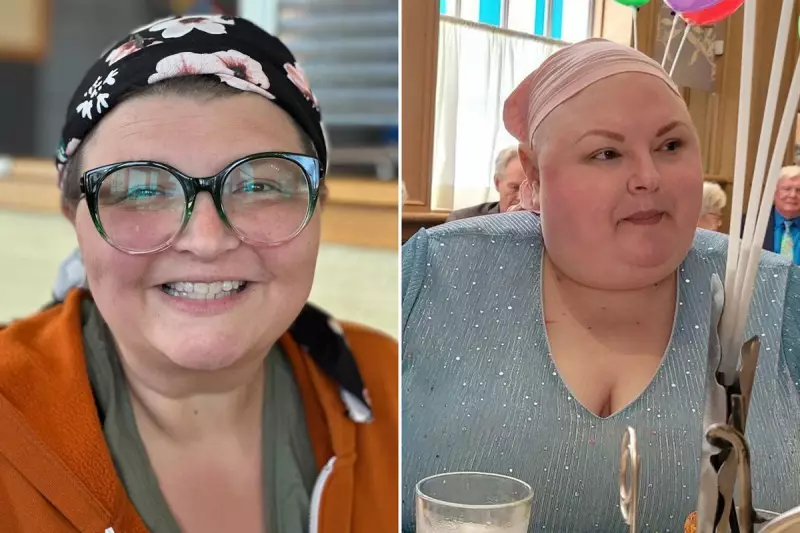
Cancer patients across the United States are fighting exhausting battles with insurance companies for life-saving treatments, with many facing dangerous delays and denials through a process called prior authorisation, The Independent can reveal.
The Human Cost of Insurance Bureaucracy
Rachael Proffitt, a 40-year-old data programme manager who actually works for one of America's largest health insurers, Aetna, discovered the harsh reality of the system when diagnosed with an aggressive form of breast cancer this year. Despite her insider knowledge, she found herself battling the very company that employs her.
"I thought that if I came to them with an issue, they'd immediately resolve it since I worked for them," Proffitt told The Independent from her home in New Orleans, Louisiana. "I was wrong."
After undergoing six rounds of chemotherapy and a double mastectomy, her oncologist recommended 14 additional rounds of Kadcyla, a specialised chemotherapy drug targeting HER2-positive breast cancer that had spread. The treatment came with a staggering price tag of $130,000 per session but increased her survival chances by 87% over five years and 57% over ten years.
Despite these odds, Aetna initially denied the full course of treatment in late September, approving only three rounds. "They don't care that I'm an employee," a frustrated Proffitt said. "They don't care that I'm a cancer patient. It would be cheaper for Aetna if I died."
Mounting Evidence of Systemic Failures
Proffitt's experience reflects a growing crisis in American healthcare. According to a 2024 American Society for Radiation Oncology survey, 7% of physicians reported that prior authorisation delays led or contributed to the death of a cancer patient in their care.
A 2025 CancerCare report found that one in ten cancer patients faced initial insurance denials, while one in five waited two weeks or more for decisions. Although insurers ultimately approved 89% of initial requests, the delays caused significant patient anxiety and potentially worsened outcomes.
Dr Amar Rewari, chief of radiation oncology at Luminis Health and an American Society for Radiation Oncology board member, emphasised the critical nature of timing in cancer treatment. "Any delays can cause negative outcomes in terms of less likelihood for cure, as well as the treatment not working," he told The Independent.
Another Mother's Fight for Survival
Amy Logan, a 40-year-old mother of four from Muncie, Indiana, faced similar obstacles with UnitedHealthcare after being diagnosed with inflammatory breast cancer in August 2024. Having already survived cervical cancer, she now confronted another aggressive form of the disease.
After a single mastectomy, immunotherapy trial and gruelling chemotherapy, her specialists at the renowned University of Texas MD Anderson Cancer Center recommended radiotherapy. UnitedHealthcare initially denied this crucial treatment, questioning the number of sessions deemed "medically necessary."
"You hear all the time, 'You have to fight for your life,'" Logan said. "I expected to fight not feeling well. I wasn't expecting to fight with insurance. That's something you just aren't prepared for."
The delays meant Logan would spend Thanksgiving 1,000 miles from her husband and four children, aged 4, 9, 17 and 20, receiving treatment in Houston rather than celebrating at home in Indiana.
Doctors Overwhelmed by Administrative Burden
Medical professionals are equally frustrated by the system. Dr Shruti Patel, a gastrointestinal medical oncologist at Stanford University, described spending hours on the phone fighting for patient care. "The range of consequences goes from patients being anxious about getting started on treatment to progression of disease, where their cancer can go from curable to incurable," she said.
Dr Rewari's Maryland clinic has had to hire additional staff specifically to handle prior authorisation paperwork. He described the process as "just a delay tactic" driven by insurance companies' efforts to control costs through utilisation management.
The 2024 ASTRO study found that more than eight in ten doctors reported the prior authorisation burden had worsened in the past three years, with 60% saying it had increased greatly and 25% somewhat.
Calls for Urgent Reform Grow Louder
Dr Alexandra Zaleta, vice president of research at CancerCare, described the American health insurance system as "incredibly complex and inefficient" for cancer patients. Her organisation's research found that 87% of patients on employer plans experienced prior authorisations, compared to 72% on Medicare Advantage and 57% on traditional Medicare.
Among patients who received denials, 88% appealed the decision, with 55% appealing once, 29% twice, and 13% three or more times. While 72% of appeals eventually resulted in reversals, one in three patients reported the entire approval process took one month or longer.
"There's been an awareness of this problem for at least the last decade," Zaleta said. "But whatever solutions or approaches are being implemented are not moving the needle."
State legislatures have taken notice, with the American Society of Clinical Oncology tracking over 110 bills on prior authorisation in 40 states during the 2025 legislative session. However, comprehensive federal reform remains elusive.
Both Proffitt and Logan eventually received their full treatment courses after appeals, but the emotional and physical toll remains. Proffitt continues to dispute a $4,000 bill for essential blood cell injections, while Logan temporarily faced a terrifying $53,000 billing error.
As Logan prepares for another holiday season disrupted by cancer treatment delays, she voiced the frustration shared by countless patients: "I try to stay optimistic but it is really hard. How many delays can I go through?"





